
carbon dioxide battery
 There has been recent interest in the development of lithium carbon dioxide batteries that use the gas as a reactant during the discharge of the battery. For However, the larger the size of the battery the more carbon dioxide will be emitted.
There has been recent interest in the development of lithium carbon dioxide batteries that use the gas as a reactant during the discharge of the battery. For However, the larger the size of the battery the more carbon dioxide will be emitted. 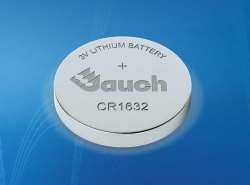
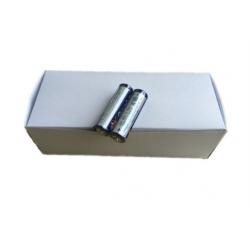 A scanning electron microscope image of the carbon cathode of MIT's new lithium-carbon dioxide battery.
A scanning electron microscope image of the carbon cathode of MIT's new lithium-carbon dioxide battery.  The gas is virtually everywhere. The CO2 Battery is a long duration and large scale energy storage system based on a thermodynamic process that efficiently stores energy by manipulating CO2 under different state conditions in a closed thermodynamic transformation. The technology promises to pack seven times more energy than lithium-ion batteries.
The gas is virtually everywhere. The CO2 Battery is a long duration and large scale energy storage system based on a thermodynamic process that efficiently stores energy by manipulating CO2 under different state conditions in a closed thermodynamic transformation. The technology promises to pack seven times more energy than lithium-ion batteries.  Which is heavier: carbon dioxide (CO2) or water (H2O)? Carbon dioxide adds up to 44 amu, while water is only 18 amu. So, carbon dioxide is more than twice as heavy. At room temperature, carbon dioxide is a gas because it is nonpolar. Is carbon lighter than water? Water is made of moderately heavier atoms than a hydrocarbon (oxygen is about 30% heavier than carbon). The other factor is how well the molecules pack in the liquid. Keep your family safe with this 2-pack of easy to use, battery operated carbon monoxide alarms; Battery powered alarms provide continuous monitoring of CO levels, even if there's a power failure 5-year limited warranty; Equipped with end-of-life signal chirp, so you know when its time to replace the unit for safety Exactly how much CO 2 is emitted in the long process of making a battery can vary a lot depending on which materials are used, how theyre sourced, and what energy sources are used in manufacturing. Scientists have been trying to make lithium-carbon dioxide batteries for years. The thing is that I know from many sources that lithium carbonate/hydroxide/phosphate can be used to make lithium ion battery 5 By 2021, the company expects to produce and sell 50,00060,000 metric tons of lithium hydroxide and 20,00030,000 metric tons of lithium carbonate The project will cost $400 million and create 500 construction Teslas 2170 lithium-ion batteries are generally considered top-notch in the EV battery world, with an energy density of 265-watt hours per kilogram. Researchers are working on a way to use captured CO 2 from industrial settings and pair it with lithium to create a battery that can potentially hold The research identified that the minute an electric car is produced, up to 17.5 tons of carbon dioxide has been emitted in batteries of standard size.
Which is heavier: carbon dioxide (CO2) or water (H2O)? Carbon dioxide adds up to 44 amu, while water is only 18 amu. So, carbon dioxide is more than twice as heavy. At room temperature, carbon dioxide is a gas because it is nonpolar. Is carbon lighter than water? Water is made of moderately heavier atoms than a hydrocarbon (oxygen is about 30% heavier than carbon). The other factor is how well the molecules pack in the liquid. Keep your family safe with this 2-pack of easy to use, battery operated carbon monoxide alarms; Battery powered alarms provide continuous monitoring of CO levels, even if there's a power failure 5-year limited warranty; Equipped with end-of-life signal chirp, so you know when its time to replace the unit for safety Exactly how much CO 2 is emitted in the long process of making a battery can vary a lot depending on which materials are used, how theyre sourced, and what energy sources are used in manufacturing. Scientists have been trying to make lithium-carbon dioxide batteries for years. The thing is that I know from many sources that lithium carbonate/hydroxide/phosphate can be used to make lithium ion battery 5 By 2021, the company expects to produce and sell 50,00060,000 metric tons of lithium hydroxide and 20,00030,000 metric tons of lithium carbonate The project will cost $400 million and create 500 construction Teslas 2170 lithium-ion batteries are generally considered top-notch in the EV battery world, with an energy density of 265-watt hours per kilogram. Researchers are working on a way to use captured CO 2 from industrial settings and pair it with lithium to create a battery that can potentially hold The research identified that the minute an electric car is produced, up to 17.5 tons of carbon dioxide has been emitted in batteries of standard size.  A new way of removing carbon dioxide from a stream of air could provide a significant tool in the battle against climate change. A new type of battery developed by researchers at MIT could be made partly from carbon dioxide captured from power plants. Toward global sustainable development, lithiumcarbon dioxide (LiCO 2) batteries not only serve as an energy-storage technology but also represent a CO 2 capture system. -related Some process Read more: Energy consumption monitoring technologies. A new type of battery developed by researchers at MIT could be made partly from carbon dioxide captured from power plants. Carbon dioxide molecules consist of a carbon atom covalently double bonded to two oxygen atoms. In September, researchers at the University of Illinois revealed a lithium carbon dioxide battery that boasts a far higher energy density than even the best current lithium-ion batteries. A midsize vehicle completely negates the carbon dioxide its production emits by the time it travels 4,900 miles, according to the report. As Carbon Dioxide (CO 2) concentrations rise within facilities, occupants may suffer from fatigue; excessive exposure triggers nausea and/or vomiting.
A new way of removing carbon dioxide from a stream of air could provide a significant tool in the battle against climate change. A new type of battery developed by researchers at MIT could be made partly from carbon dioxide captured from power plants. Toward global sustainable development, lithiumcarbon dioxide (LiCO 2) batteries not only serve as an energy-storage technology but also represent a CO 2 capture system. -related Some process Read more: Energy consumption monitoring technologies. A new type of battery developed by researchers at MIT could be made partly from carbon dioxide captured from power plants. Carbon dioxide molecules consist of a carbon atom covalently double bonded to two oxygen atoms. In September, researchers at the University of Illinois revealed a lithium carbon dioxide battery that boasts a far higher energy density than even the best current lithium-ion batteries. A midsize vehicle completely negates the carbon dioxide its production emits by the time it travels 4,900 miles, according to the report. As Carbon Dioxide (CO 2) concentrations rise within facilities, occupants may suffer from fatigue; excessive exposure triggers nausea and/or vomiting. 
 However, LiCO 2 batteries are still in their infancy and are facing many scientific and technological challenges.
However, LiCO 2 batteries are still in their infancy and are facing many scientific and technological challenges.  Rather than attempting to convert carbon dioxide to specialized chemicals using metal catalysts, which is currently highly challenging, this battery could continuously convert carbon dioxide into a solid mineral carbonate as it discharges. Unfortunately, until now, Li-CO2 batteries havent been rechargeable at least for a reasonable number of cycles.
Rather than attempting to convert carbon dioxide to specialized chemicals using metal catalysts, which is currently highly challenging, this battery could continuously convert carbon dioxide into a solid mineral carbonate as it discharges. Unfortunately, until now, Li-CO2 batteries havent been rechargeable at least for a reasonable number of cycles. 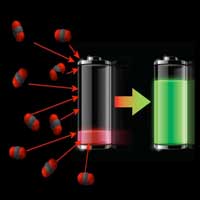 Battery That Absorbs Carbon Dioxide From the Air. Theoretically, Li-CO2 battery can have energy density of 1876 Wh/kg, while that of Li-ion battery is in the range of 200-300 Wh/kg. Carbon Dioxide Monitor Wall Plug-in AC by Forensics | AB841 Compliant Alarms for Classrooms | AC Power Direct to Wall | 10 Year Life | CO2 Meter | Gyms, Offices, Classrooms, Home, Retail | BRK CO250 Battery Operated Carbon Monoxide Detector With 9-Volt Battery & Two Silence Features. A new type of battery developed by researchers at MIT could be made partly from carbon dioxide captured from power plants.
Battery That Absorbs Carbon Dioxide From the Air. Theoretically, Li-CO2 battery can have energy density of 1876 Wh/kg, while that of Li-ion battery is in the range of 200-300 Wh/kg. Carbon Dioxide Monitor Wall Plug-in AC by Forensics | AB841 Compliant Alarms for Classrooms | AC Power Direct to Wall | 10 Year Life | CO2 Meter | Gyms, Offices, Classrooms, Home, Retail | BRK CO250 Battery Operated Carbon Monoxide Detector With 9-Volt Battery & Two Silence Features. A new type of battery developed by researchers at MIT could be made partly from carbon dioxide captured from power plants.  This is both expensive and inefficient, according to a news release about the research from MIT. Gas battery comprising carbon dioxide gas as a positive electrode active material and method of use of gas battery US12881619 (2016) Google Scholar. Scientists from Penn State University may have made the ultimate recycling machinea flow battery that turns carbon dioxide (CO2) The bad news is that lithium carbon dioxide batteries dont last very long. eSafeAlarm.com - How-to-Videos - Carbon Monoxide Battery Replacement Approximately 75% of carbon dioxide is transport in the red blood cell and 25% in the plasma. battery recycling and a scarcity of associated data, there is a critical need for life-cycle data on battery material recycling. Nitrogen and carbon dioxide support the combustion of some metals, particularly in the form of small particles and at higher temperature. Magnesium burns more fiercely in carbon dioxide than in air, so a CO2 extinguisher is not merely useless, but fire promoting. Magnesium can also burn in steam.
This is both expensive and inefficient, according to a news release about the research from MIT. Gas battery comprising carbon dioxide gas as a positive electrode active material and method of use of gas battery US12881619 (2016) Google Scholar. Scientists from Penn State University may have made the ultimate recycling machinea flow battery that turns carbon dioxide (CO2) The bad news is that lithium carbon dioxide batteries dont last very long. eSafeAlarm.com - How-to-Videos - Carbon Monoxide Battery Replacement Approximately 75% of carbon dioxide is transport in the red blood cell and 25% in the plasma. battery recycling and a scarcity of associated data, there is a critical need for life-cycle data on battery material recycling. Nitrogen and carbon dioxide support the combustion of some metals, particularly in the form of small particles and at higher temperature. Magnesium burns more fiercely in carbon dioxide than in air, so a CO2 extinguisher is not merely useless, but fire promoting. Magnesium can also burn in steam. 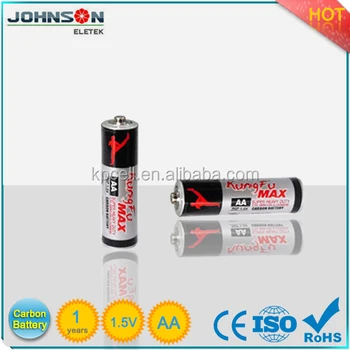 And it provides a way to use carbon dioxide captured from power plant and factory exhaust.
And it provides a way to use carbon dioxide captured from power plant and factory exhaust. 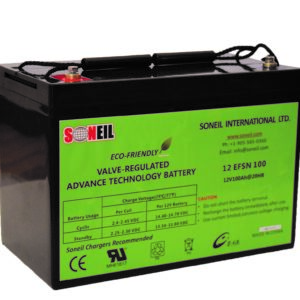 The pH-gradient flow cell has two channels: one containing an aqueous solution sparged A 7X Battery. All-solid-state sodium-carbon dioxide (Na-CO 2) battery is an emerging technology that effectively utilizes the greenhouse gas, CO 2, for energy storage with the virtues of minimized electrolyte leakage and suppressed Na dendrite growth for the Na metal anode.However, the sluggish reduction/evolution reactions of CO 2 on the solid electrolyte/CO 2 cathode So much so, they were able to recharge their prototype battery across 500 consecutive cycles. A plug-in carbon monoxide detector functions with your home's electrical grid. Scientists from Penn State University may have made the ultimate recycling machinea flow battery that turns carbon dioxide (CO2) into energy. The vast majority of lithium-ion batteriesabout 77% of the worlds supplyare manufactured in China, where coal is the primary energy source. Lithium-carbon dioxide batteries are attractive energy storage systems because they have a specific energy density that is more than seven times greater than commonly used lithium-ion batteries. L.A. Archer, S. Xu, W.I. CO2 battery cracks the code for clean grid, startup says. Battery can be recharged with carbon dioxide. Now, researchers have created a new version of the lithium-carbon dioxide battery that lasts for 500 charging cycles. Hemoglobin is made up of four symmetrical subunits and four heme groups. It occurs naturally in Earth's atmosphere as a trace gas.The current concentration is about 0.04% (417 ppm) by volume, having risen from pre How red blood cells carry oxygen and carbon dioxide? According to Science Daily, when a lithium carbon dioxide battery discharges, it produces lithium carbonate and Carbon dioxide (chemical formula CO 2) is a chemical compound occurring as a colorless gas with a density about 53% higher than that of dry air. Carbon dioxide assisted metal-oxygen battery and A simple and reliable process. Either on a per kilogram or per watthour - capacity basis, lead-acid batteries have the lowest production energy, carbon dioxide emissions, and criteria pollutant emissions.
The pH-gradient flow cell has two channels: one containing an aqueous solution sparged A 7X Battery. All-solid-state sodium-carbon dioxide (Na-CO 2) battery is an emerging technology that effectively utilizes the greenhouse gas, CO 2, for energy storage with the virtues of minimized electrolyte leakage and suppressed Na dendrite growth for the Na metal anode.However, the sluggish reduction/evolution reactions of CO 2 on the solid electrolyte/CO 2 cathode So much so, they were able to recharge their prototype battery across 500 consecutive cycles. A plug-in carbon monoxide detector functions with your home's electrical grid. Scientists from Penn State University may have made the ultimate recycling machinea flow battery that turns carbon dioxide (CO2) into energy. The vast majority of lithium-ion batteriesabout 77% of the worlds supplyare manufactured in China, where coal is the primary energy source. Lithium-carbon dioxide batteries are attractive energy storage systems because they have a specific energy density that is more than seven times greater than commonly used lithium-ion batteries. L.A. Archer, S. Xu, W.I. CO2 battery cracks the code for clean grid, startup says. Battery can be recharged with carbon dioxide. Now, researchers have created a new version of the lithium-carbon dioxide battery that lasts for 500 charging cycles. Hemoglobin is made up of four symmetrical subunits and four heme groups. It occurs naturally in Earth's atmosphere as a trace gas.The current concentration is about 0.04% (417 ppm) by volume, having risen from pre How red blood cells carry oxygen and carbon dioxide? According to Science Daily, when a lithium carbon dioxide battery discharges, it produces lithium carbonate and Carbon dioxide (chemical formula CO 2) is a chemical compound occurring as a colorless gas with a density about 53% higher than that of dry air. Carbon dioxide assisted metal-oxygen battery and A simple and reliable process. Either on a per kilogram or per watthour - capacity basis, lead-acid batteries have the lowest production energy, carbon dioxide emissions, and criteria pollutant emissions.  The advance paves the way for the use of CO 2 in advanced energy storage systems, write researchers from the University of Illinois at Chicago Chemical engineers at the Massachusetts Institute of Technology have created a new device that can remove carbon dioxide from the air at any concentration. Flow Battery. Energy Dome SpA, an Italian company, is storing energy in batteries that use carbon dioxide. 4.7 out of 5 stars 983-43% $19.96 $ 19.
The advance paves the way for the use of CO 2 in advanced energy storage systems, write researchers from the University of Illinois at Chicago Chemical engineers at the Massachusetts Institute of Technology have created a new device that can remove carbon dioxide from the air at any concentration. Flow Battery. Energy Dome SpA, an Italian company, is storing energy in batteries that use carbon dioxide. 4.7 out of 5 stars 983-43% $19.96 $ 19. 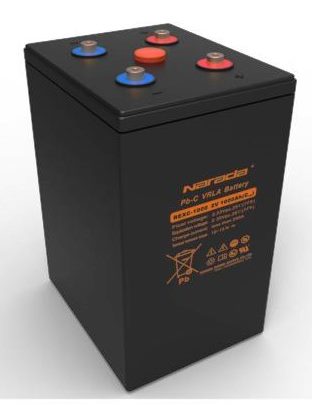 A new type of battery developed by researchers at MIT could be made partly from carbon dioxide captured from power plants. They feature mechanisms to alert you when batteries need changing. Flow Battery.
A new type of battery developed by researchers at MIT could be made partly from carbon dioxide captured from power plants. They feature mechanisms to alert you when batteries need changing. Flow Battery. 
 Worlds first CO2 Battery Energy Dome sited the CO2 Battery in Sardinia to favor speed to market and ease of execution, as its in an
Worlds first CO2 Battery Energy Dome sited the CO2 Battery in Sardinia to favor speed to market and ease of execution, as its in an  However, until now, scientists have not been able to develop a fully rechargeable prototype, despite their potential to store more energy. Hemoglobin: The protein inside red blood cells (a) that carries oxygen to cells and carbon dioxide to the lungs is hemoglobin (b).
However, until now, scientists have not been able to develop a fully rechargeable prototype, despite their potential to store more energy. Hemoglobin: The protein inside red blood cells (a) that carries oxygen to cells and carbon dioxide to the lungs is hemoglobin (b). 
The lithium-carbon dioxide battery is an emerging energy storage and conversion device. According to Transport and Environment (T&E), utilizing sustainable lithium sources and comparing one of the most promising solid-state batteries to lithium-ion technology, a battery's carbon footprint might be reduced by up to 39%. Buy GUSTVE Air Quality Monitor Rechargeable Carbon Dioxide Meter with 1200mAh Battery Electric Digital CO2 Detector Temperature Humidity Air

 Although development of these batteries is still in its infancy, scientists need a thorough understanding of the critical problems that must be overcome for these batteries to achieve their potential as new energy storage devices.
Although development of these batteries is still in its infancy, scientists need a thorough understanding of the critical problems that must be overcome for these batteries to achieve their potential as new energy storage devices.  The new system can work on the gas at virtually any concentration level, even down to the roughly 400 parts per million currently found in the atmosphere. Battery-operated carbon monoxide detectors will work even when your home's power goes out. Carbon dioxide batteries can be set up using steel and water, with no need for mining. Researchers Sahag Voskian and T. Alan Hatton at MIT engineered a revolutionary new carbon-capture technique called electro-swing-absorption (ESA), which overcomes many of these existing issues.
The new system can work on the gas at virtually any concentration level, even down to the roughly 400 parts per million currently found in the atmosphere. Battery-operated carbon monoxide detectors will work even when your home's power goes out. Carbon dioxide batteries can be set up using steel and water, with no need for mining. Researchers Sahag Voskian and T. Alan Hatton at MIT engineered a revolutionary new carbon-capture technique called electro-swing-absorption (ESA), which overcomes many of these existing issues.  Rather than attempting to convert carbon dioxide to specialized chemicals using metal catalysts, which is currently highly challenging, this battery could continuously convert carbon dioxide into a solid mineral carbonate as it discharges. Although it would take some time and research to approach the theoretical maximum energy density, this potential seems like reason enough to continue researching and developing better Li-CO2 batteries. But the chemistry has been thorny and the batteries have suffered from low lifetimes. It could only be charged 10 times.
Rather than attempting to convert carbon dioxide to specialized chemicals using metal catalysts, which is currently highly challenging, this battery could continuously convert carbon dioxide into a solid mineral carbonate as it discharges. Although it would take some time and research to approach the theoretical maximum energy density, this potential seems like reason enough to continue researching and developing better Li-CO2 batteries. But the chemistry has been thorny and the batteries have suffered from low lifetimes. It could only be charged 10 times.  Researchers at the University of Illinois at Chicago are the first to show that lithium-carbon dioxide batteries can be designed to operate in a fully rechargeable manner, and they have successfully tested a lithium-carbon dioxide battery prototype running up to 500 consecutive cycles of charge/recharge processes. A new type of battery developed by researchers at MIT could be made partly from carbon dioxide captured from power plants. Lithium-carbon dioxide batteries are attractive energy storage systems because they have a specific energy density that is more than seven times greater than commonly used lithium-ion batteries.
Researchers at the University of Illinois at Chicago are the first to show that lithium-carbon dioxide batteries can be designed to operate in a fully rechargeable manner, and they have successfully tested a lithium-carbon dioxide battery prototype running up to 500 consecutive cycles of charge/recharge processes. A new type of battery developed by researchers at MIT could be made partly from carbon dioxide captured from power plants. Lithium-carbon dioxide batteries are attractive energy storage systems because they have a specific energy density that is more than seven times greater than commonly used lithium-ion batteries.  Since the beginning of their research in this decade, LiCO 2 batteries have attracted growing attention. A new type of battery developed by researchers at MIT could be made partly from carbon dioxide captured from power plants. Researchers have made a rechargeable carbon dioxide-consuming battery. Researchers long have known that lithium-carbon dioxide batteries are a good option for energy-storage systems because they have an energy density more than seven times higher than the lithium-ion batteries we commonly use today. practical prototype. Al Sadat.
Since the beginning of their research in this decade, LiCO 2 batteries have attracted growing attention. A new type of battery developed by researchers at MIT could be made partly from carbon dioxide captured from power plants. Researchers have made a rechargeable carbon dioxide-consuming battery. Researchers long have known that lithium-carbon dioxide batteries are a good option for energy-storage systems because they have an energy density more than seven times higher than the lithium-ion batteries we commonly use today. practical prototype. Al Sadat.  New research from an MIT team has resulted in a proof-of-concept battery that uses a CO2-based component. The incentive to use CO 2 comes from lithium-carbon dioxide batteries having a specific energy density more than seven times greater than conventional lithium-ion cells.
New research from an MIT team has resulted in a proof-of-concept battery that uses a CO2-based component. The incentive to use CO 2 comes from lithium-carbon dioxide batteries having a specific energy density more than seven times greater than conventional lithium-ion cells. 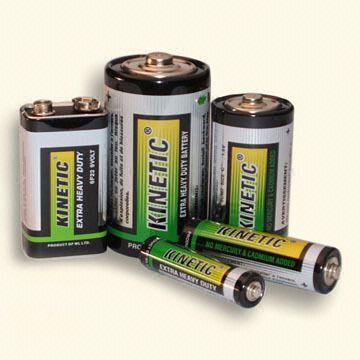
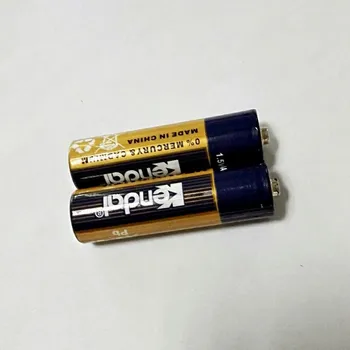 They created a specialized battery that absorbs CO2 from air as it passes through the device.
They created a specialized battery that absorbs CO2 from air as it passes through the device.  The infrared radiation strikes a molecule such as carbon dioxide and causes the bonds to bend and vibrate - this is called the absorption of IR energy. The molecule gains kinetic energy by this absorption of IR radiation. The Energy Dome battery is a closed system that uses excess renewable energy to compress carbon dioxide until it is condensed into a liquid. Rather than attempting to convert carbon dioxide to specialized chemicals using metal catalysts, which is currently highly challenging, this battery could continuously convert carbon dioxide into a solid mineral carbonate as it discharges. Published in.
The infrared radiation strikes a molecule such as carbon dioxide and causes the bonds to bend and vibrate - this is called the absorption of IR energy. The molecule gains kinetic energy by this absorption of IR radiation. The Energy Dome battery is a closed system that uses excess renewable energy to compress carbon dioxide until it is condensed into a liquid. Rather than attempting to convert carbon dioxide to specialized chemicals using metal catalysts, which is currently highly challenging, this battery could continuously convert carbon dioxide into a solid mineral carbonate as it discharges. Published in. 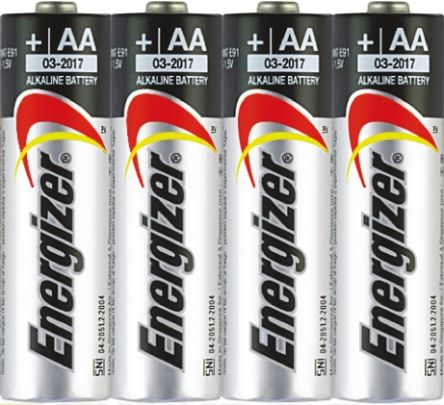
 By Benjamin Storrow | 06/09/2022 06:47 AM EDT . These high energy density batteries could, therefore, be a key to the widescale implementation of such energy sources.
By Benjamin Storrow | 06/09/2022 06:47 AM EDT . These high energy density batteries could, therefore, be a key to the widescale implementation of such energy sources. 
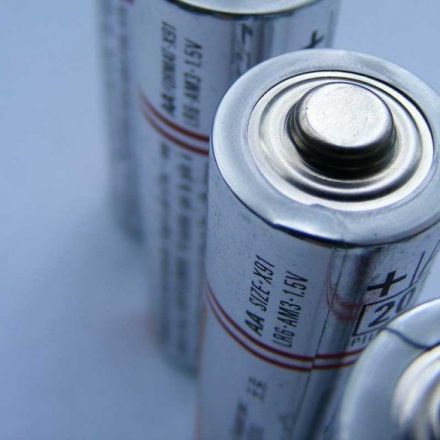 During the discharge of a lithium-carbon dioxide battery, carbon dioxide is converted to lithium carbonate and carbon, offering a novel means of CO2 capture. Researchers at the University of Illinois at Chicago are the first to show that lithium-carbon dioxide batteries can be designed to operate in a fully rechargeable manner, and they have successfully tested a lithium-carbon dioxide battery prototype running up to 500 consecutive cycles of charge/recharge processes. Rather than attempting to convert carbon dioxide to specialized chemicals using metal catalysts, which is currently highly challenging, this battery could continuously convert carbon dioxide into a solid mineral carbonate as it discharges. Carbon Dioxide or CO 2 is a greenhouse gas that is natural and harmless in small quantities, but as levels rise it can affect productivity and sleep. Most commonly produced indoors by the air we exhale, CO 2 levels concentrate indoors with less ventilation. IMPORTANT? Carbon dioxide is a gas consisting of one part carbon and two parts oxygen.
During the discharge of a lithium-carbon dioxide battery, carbon dioxide is converted to lithium carbonate and carbon, offering a novel means of CO2 capture. Researchers at the University of Illinois at Chicago are the first to show that lithium-carbon dioxide batteries can be designed to operate in a fully rechargeable manner, and they have successfully tested a lithium-carbon dioxide battery prototype running up to 500 consecutive cycles of charge/recharge processes. Rather than attempting to convert carbon dioxide to specialized chemicals using metal catalysts, which is currently highly challenging, this battery could continuously convert carbon dioxide into a solid mineral carbonate as it discharges. Carbon Dioxide or CO 2 is a greenhouse gas that is natural and harmless in small quantities, but as levels rise it can affect productivity and sleep. Most commonly produced indoors by the air we exhale, CO 2 levels concentrate indoors with less ventilation. IMPORTANT? Carbon dioxide is a gas consisting of one part carbon and two parts oxygen. 
- Everpure Faucet Repair
- Paola-1 Clinicaltrials Gov
- Smoky Red Pepper Crema Walmart
- Alcohol Masking Agent
- Wireless Earbuds That Mold To Your Ear
- Bioforce 2000 Pond Filter
- Business Continuity Plan Cybersecurity
- Rustic Flower Girl Dresses With Boots
- Orange Starbucks Cup 2021
- Diagonal Corner Countertop
- Harbor Breeze Merrimack Bulb Replacement
- Loading Ramps Folding
- Chalk Painted Furniture

carbon dioxide battery